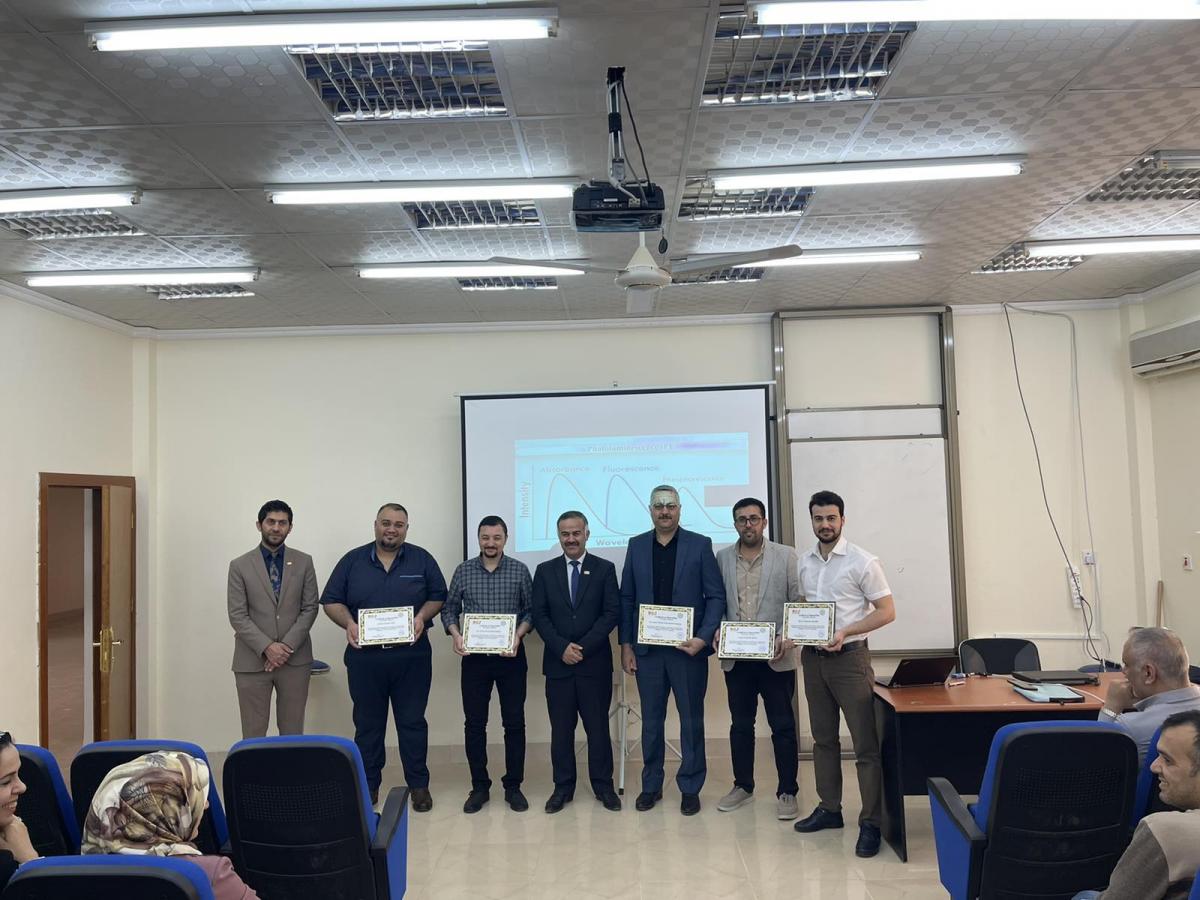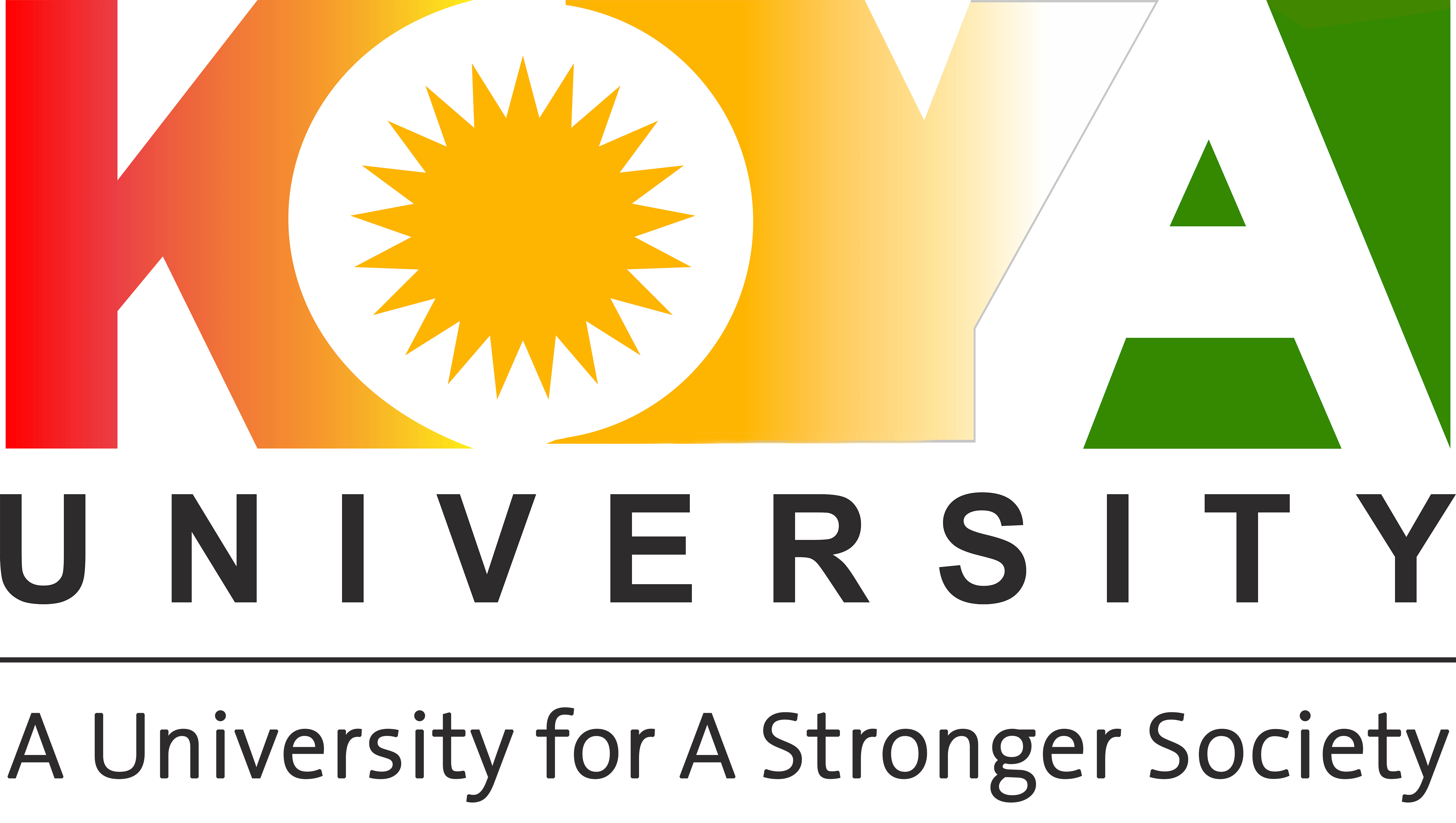Reaction development and characterization by different instrumental techniques Workshop was held on 13th and 14th of April 2022 in Science and Health Research Center at Koya University in the presence of the president of the University ‘Prof. Dr. Wali Hamad’ and the Dean of the FSCH ‘Asst. Prof. Dr. Taha Jalal Omar’ with his vice dean ‘Mr. Hawkar Jaafar Hamad Ameen’, in which certificates of appreciation were distributed to all the five presenters who performed excellency in their presentation.
This workshop focused on those aspects of reaction characterization, scale-up, data interpretation and highlighting those methods that have the potential to significantly improve the efficiency and effectiveness of development activities that are of greater relevance to the academic staff of FSCH, and then the presenters introduced the available instruments at FSCH research center.
This workshop began by reviewing the Reaction Development in organic Chemistry, the Agilent Cary Spectrophotometer, Fluorescence Spectrometer, and Fourier-transform infrared spectroscopy as it explained briefly in the Programme of this workshop.
At the end of this event, the Dean of the faculty ‘Asst. Prof. Dr. Taha Jalal Omar’ said that the presenters were doing great and urged them to continue doing good work, which can help the academic staff with their research.
The workshop’s details
Title: Reaction development and characterization by different instrumental techniques
Name of Presenters: Dr. Emad Khelil Mohammed zangana, Dr. Kosrat Nazad Kaka, Mr. Shalaw Kamal Salih, Mr. Aryan Fathulla Qader, and Mr. Rebaz Muhtasm Mustafa
Number of participants: 35 academic staff
Date: 13-14/4/2022
Location: Health and Science Research Center
The Programme of the workshop
1st day: 13th of April
First, this workshop was opened by the speech of the head of Chemistry department of FSCH ‘Mr. Rebaz Muhtasm Mustafa’, who introduced the presenters and their topics as well. Then each presenter explained their topics both theoretically and practically.
Presenter 1: Dr. Emad Khelil Mohammed Zangana
Title: Reaction Development in organic Chemistry
Chemical reaction: is a process in which one or more substances (the reactants) are converted to one or more different substances (the products). There are several types in organic reaction synthesis such as: Substitution, addition, elimination, rearrangement and redox. The main modification for the biological compounds can be in C-H activation, aromatic reduction ring contraction and ring explanation. Each target in the synthesis should be consist of several steps. These steps can be classified in two methods: a) Single-step synthesis. B) Multi-step synthesis.
To obtain a higher yield in each reaction step. It should be discovering the best conditions and reagents. There are many new instruments that used to increase the yield and decrease the time, such as microwave instrument synthesizer. On the other hands, there is a newest synthesis method: A) Solid Phase Synthesis, which is used for normal reaction B) Solid Phase Peptide Synthesis (SPPS), which is used only peptides synthesis.
Presenter 2: Dr. Kosrat Nazad Kaka
Title: The Agilent Cary spectrophotometer
This has a proven track record of optical design and innovation, providing unmatched performance. The Cary UV-Vis (Ultraviolet-Visible) spectrophotometer is flexible and reliable, making it ideal for routine and research measurements. The Cary UV-Vis NIR (Ultraviolet-Visible-Near-Infrared) spectrophotometer provides excellent photometry for a variety of liquid and solid sample applications. Our accurate and intuitive UV-Vis and UV-Vis NIR instruments provide outstanding resolution and unmatched linearity for all measurements. A comprehensive portfolio of accessories and consumables provides increased flexibility, routine UV-Vis spectroscopic analysis of liquid or solid samples, accurate temperature measurements, demanding transmission and reflectivity measurements of solid samples, and Easy to set up and use for many other UV-Vis and UV-Vis NIR spectroscopy. Applications in Chemistry, physics, biology and others.
2nd day: 14th of April
Presenter 1: Mr. Aryan Fathulla Qade
Title: Fluorescence Spectrometer
The fundamentals of fluorescence spectroscopy and instrumentation was first explained, such as Principles and Theory of Fluorescence Spectroscopy and Fluorescence Instrumentation. Next, several things have an impact on fluorescence and phosphorescence. Then, the benefits and drawbacks of fluorescence spectroscopy, as well as the applications of fluorescence spectroscopy were discussed. Finally, the attendees were participated in a practical fluorescence spectroscopy experiment to understand how the device works.
Presenter 2: Mr. Shalaw Kamal Salih
Title: Fourier-transform infrared spectroscopy
It is a technique used to obtain an infrared spectrum of absorption or emission of a solid, liquid or gas. An FTIR spectrometer simultaneously collects high-resolution spectral data over a wide spectral range. This confers a significant advantage over a dispersive spectrometer, which measures intensity over a narrow range of wavelengths at a time. Infrared spectroscopy is an extremely important instrumental tool in applied and basic sciences for the determination of various functional groups.
We have described in detail the range of electromagnetic spectrum, IR regions, and basic principal by which IR radiations interact with matter. The identification of various functional groups in different class of organic compounds is also described. and finally its application for the characterization of nanomaterials is described. The application of IR spectroscopy in various fields is explained in detailed.
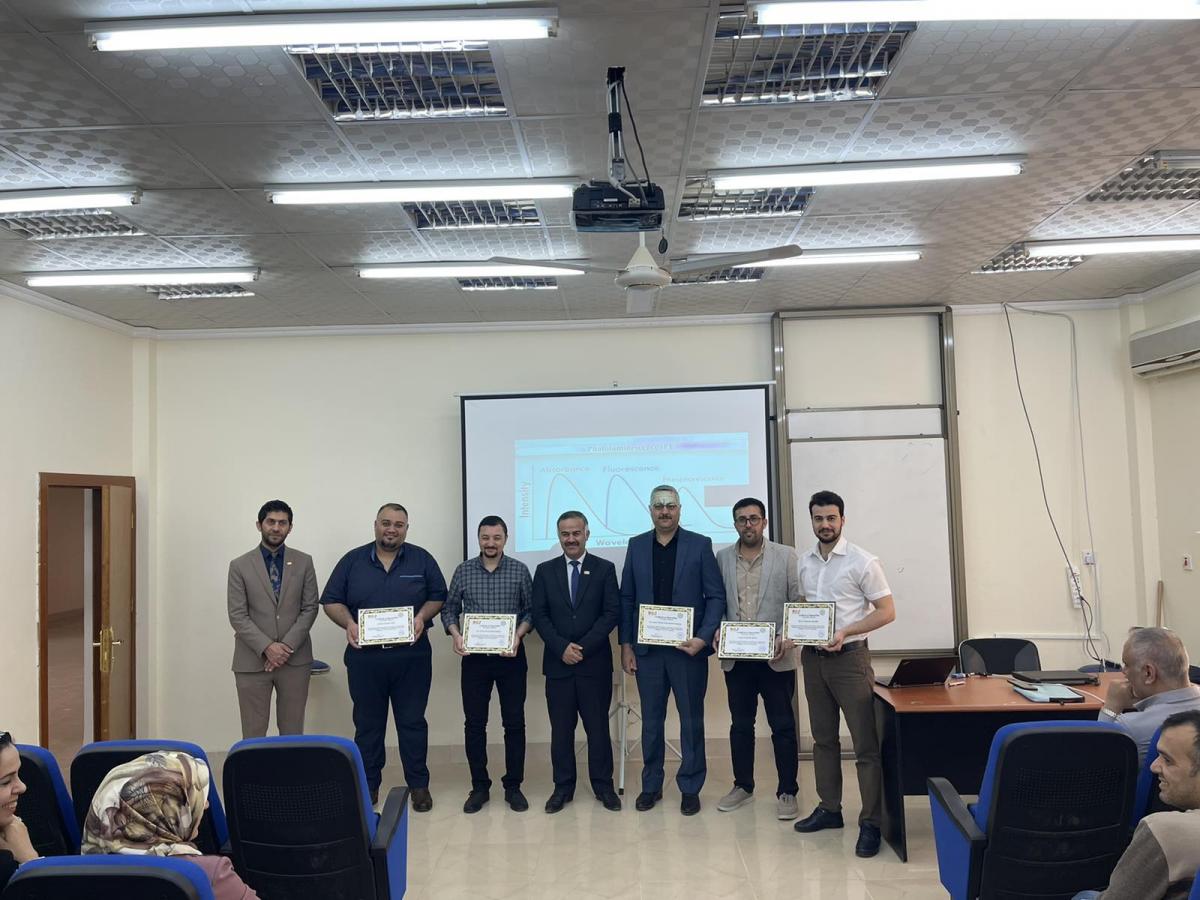
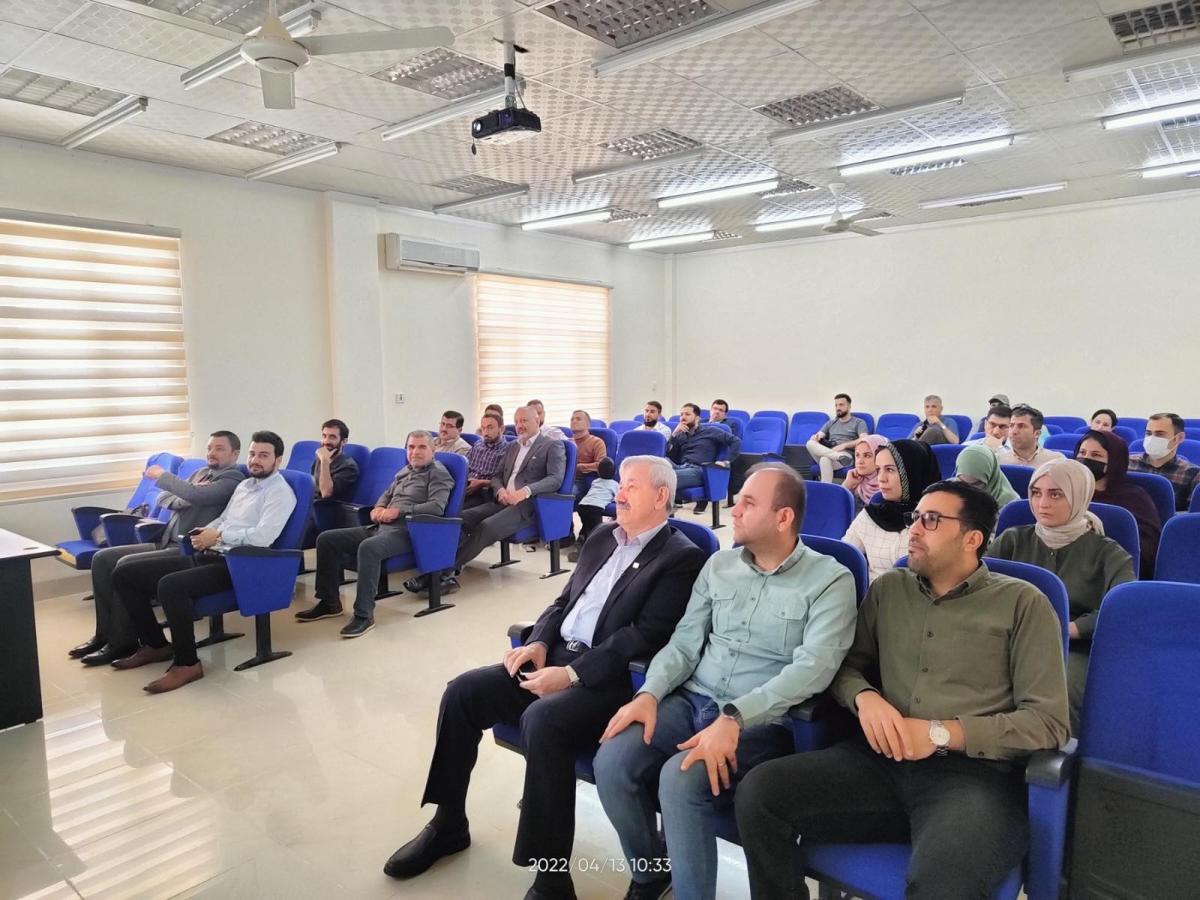
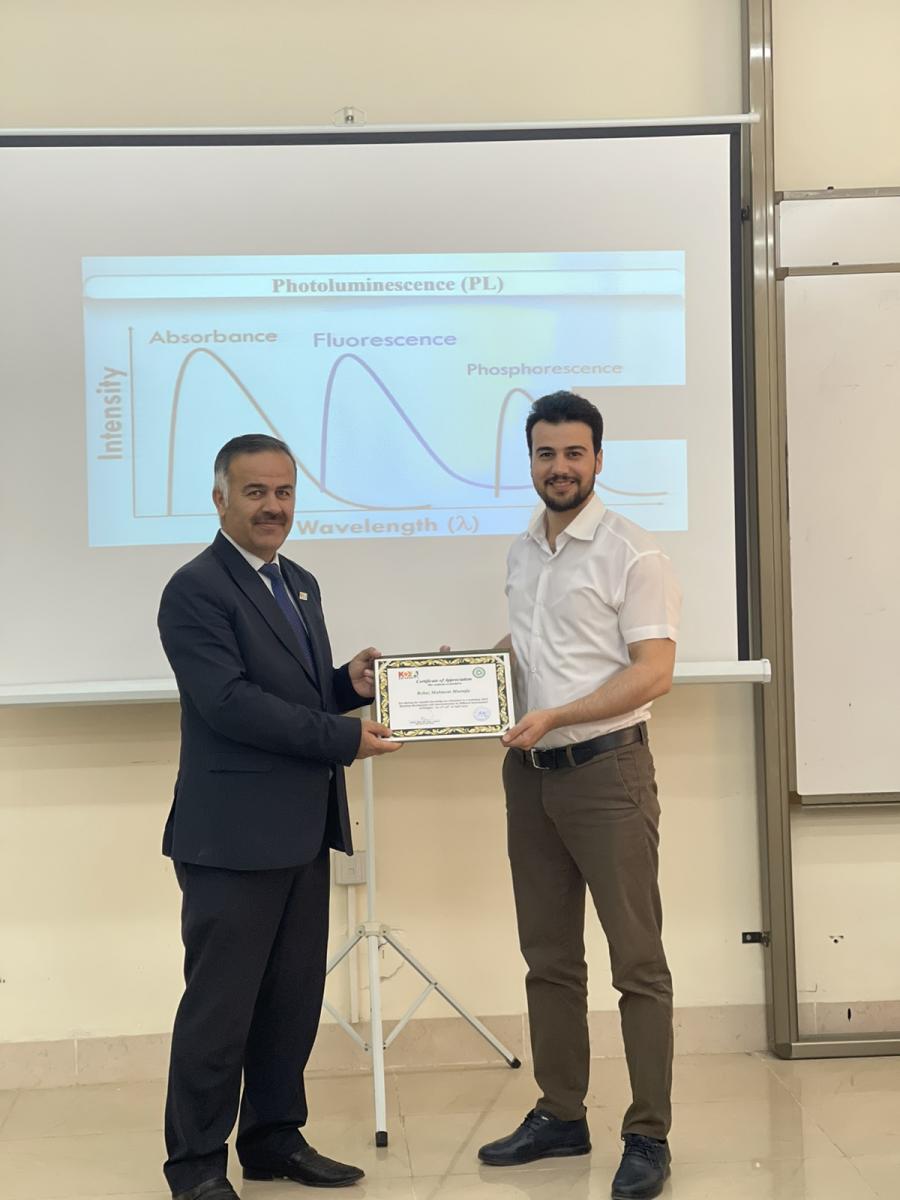
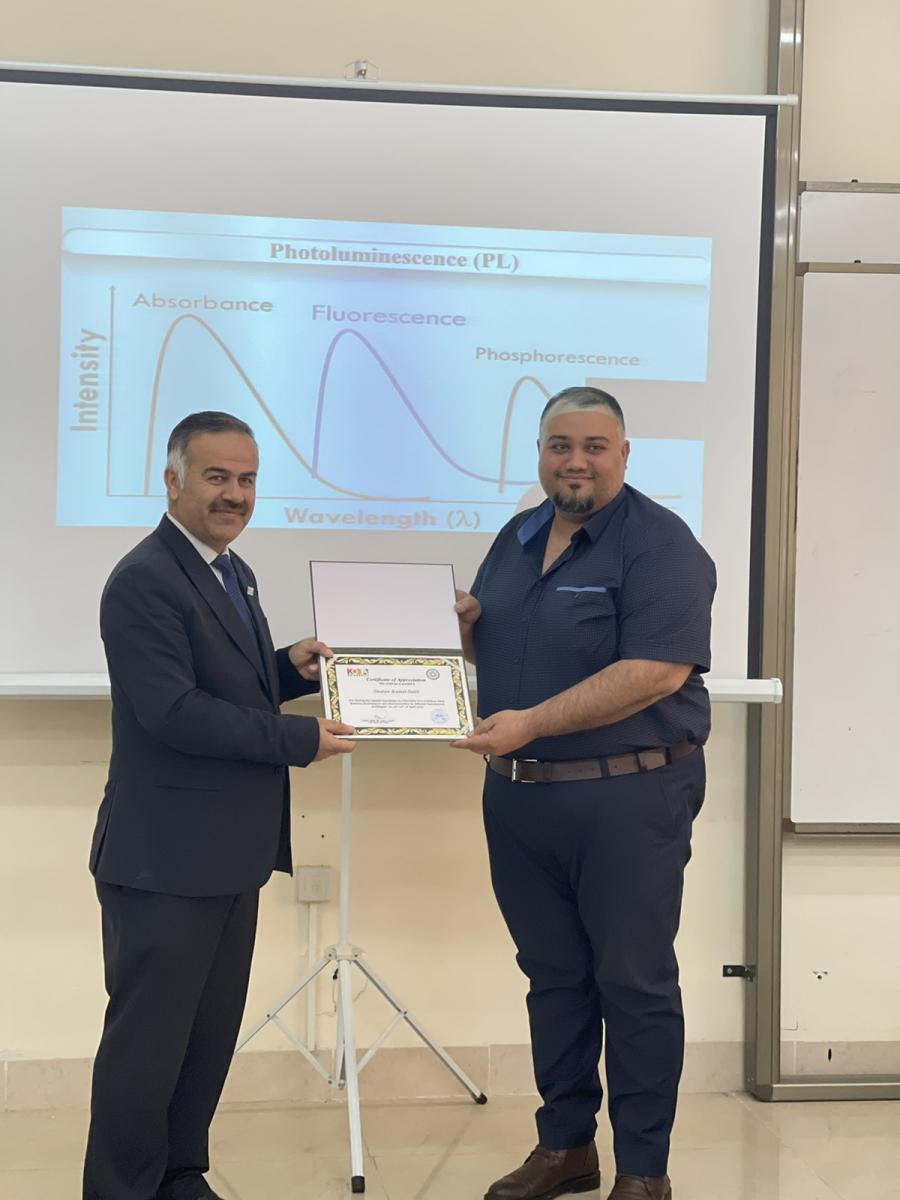
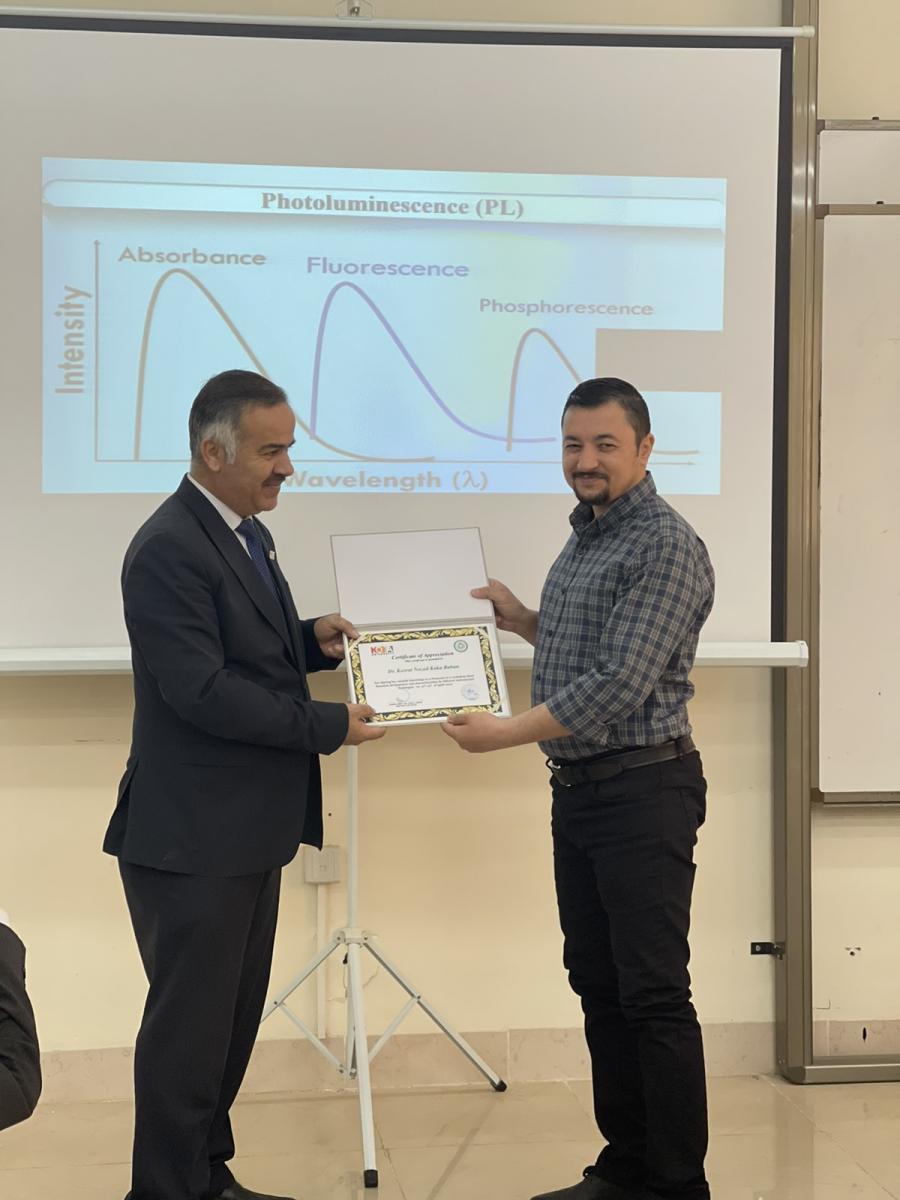
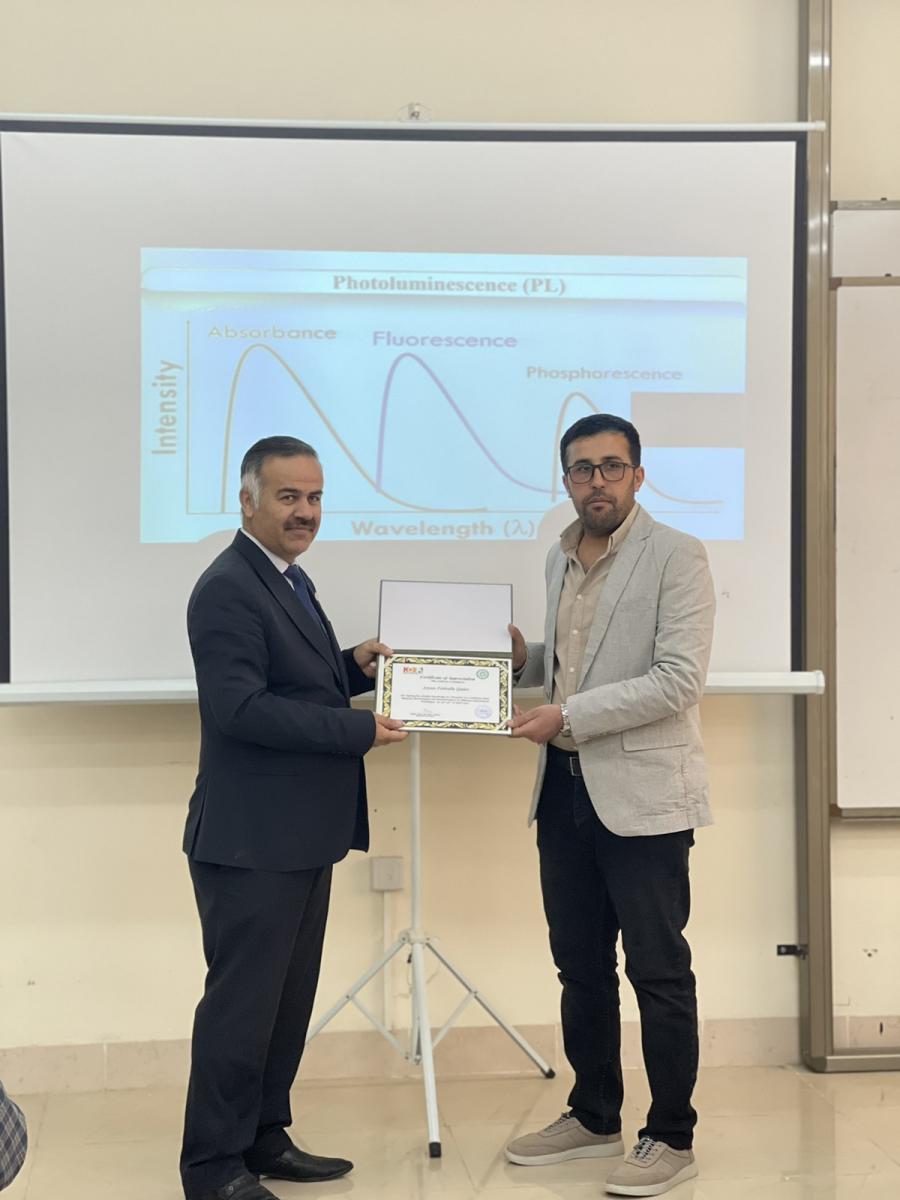
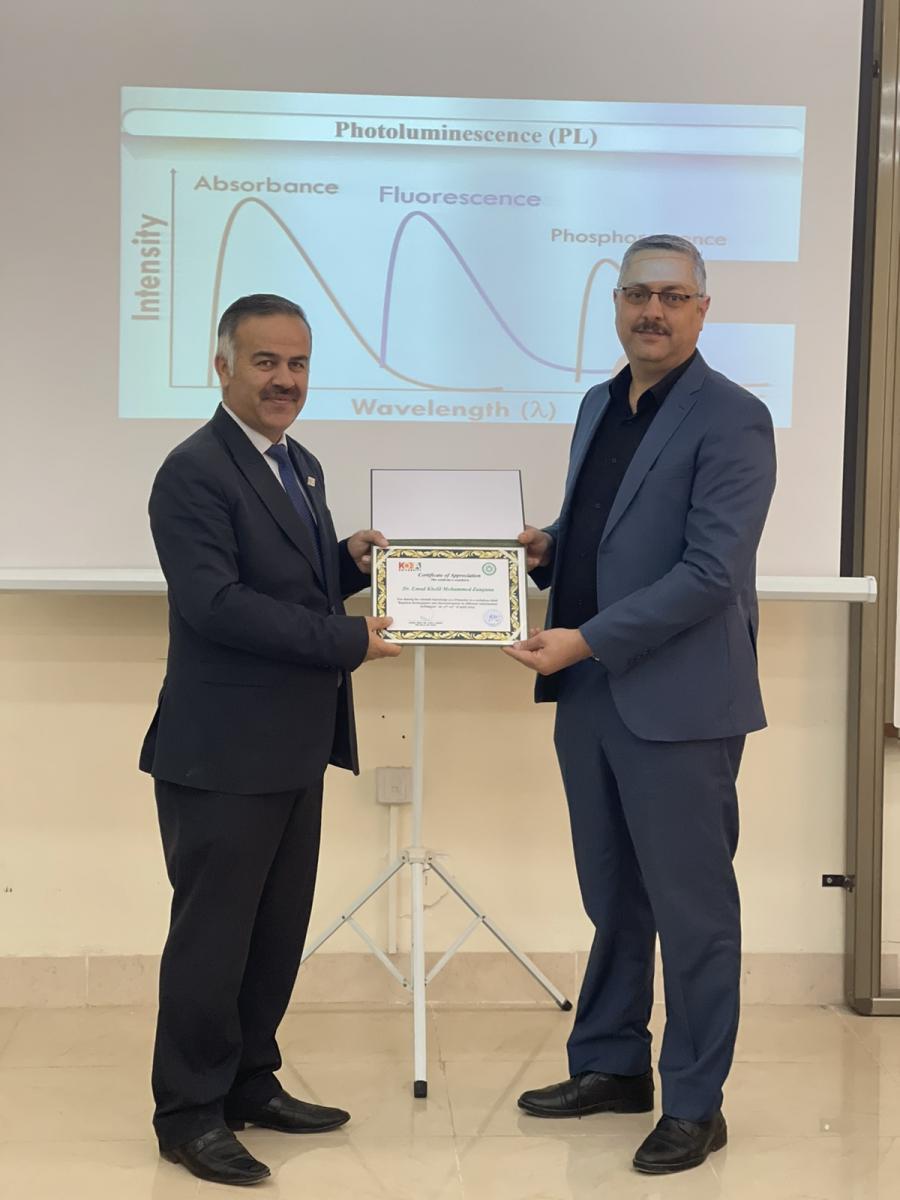
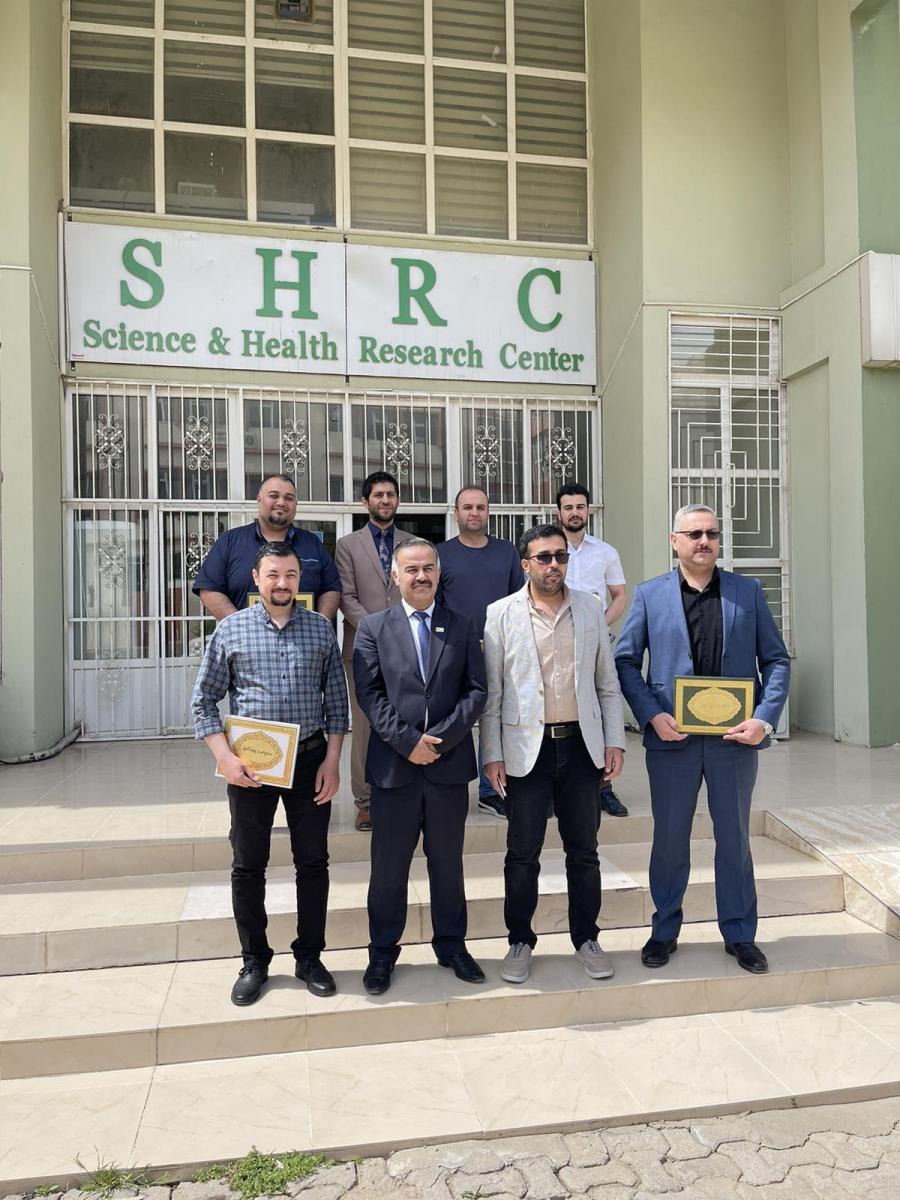
-----
Koya University (KOU) is located in the city of Koya (Koy Sanjaq) which is 1.0 hr drive to the East of the Kurdistan Region capital Erbil (Arbil, Hewlér) in Kurdistan Region of F.R. Iraq. It is on the foothills of beautiful high mountain. Its campus has been carefully laid out to embrace the beautiful mountainous nature. . There are 4 Faculties and 2 Schools in KOU; Faculty of Engineering (FENG), Faculty of Science and Health (FSCH), Faculty of Education (FEDU), Faculty of Humanities and Social Silences (FHSS), Shcool of Physical Education (SPHE) and School of Medicine (SMED). Also, there are two research centers; Genome Center and Malai Gawra Center. Moreover, at KOU there is an English Language Center (BELC) at KOU has been opened with the sponsorship of IREX and American embassy in Baghdad as well as with the support of Spring International Language Center of The University of Arkansas. KOU has two Scientific Journals; ARO-The Scientific Journal of Koya University, which is indexed by Clarivate Analytics (ESCI), and Koya University Journal of Humanities and Social Sciences (KUJHSS). KOU is a proactive member of Erasmus/ Marhaba Project and Erasmus+. KOU signed many Memorandum of Understandings (MoU) with many International Universities, e.g., The University of Arkansas (June 2015). The Lulea University in Sweden (April 2014), The University of Nottingham in the UK, The University of Buckingham in the UK (Oct 2008), Belkin University in Turkey (Sep 2009) The University of Greenwich in the UK, Cihan University-Erbil (2021) and Tishk International University (2021). Koya University is a memebr of The Association of Arab Universities and the International Association of Universities.
Arabic Wikipedia | Turkish Wikipedia Iraq | Tukish Wikipedia KRG | Persian Wikipedia | Wikipedia Kurdistan | University of hawai
قائمة جامعات العراق | كردستان العراق
